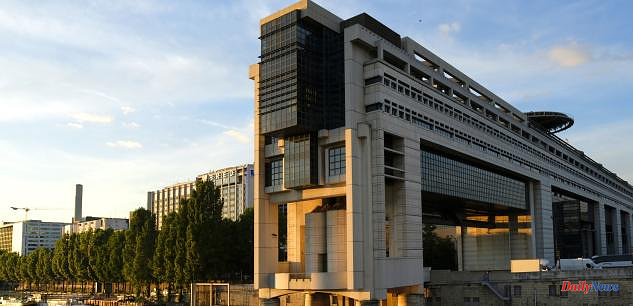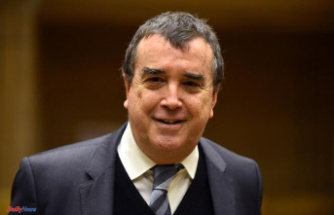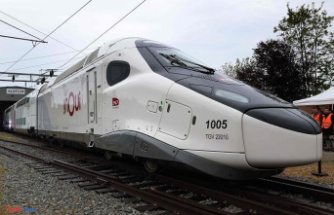Storm warning for France's economy: With GDP falling in the first quarter, inflation at 5%, and households reducing their consumption, there are clouds gathering. The government promises to "protect" French purchasing power.
INSEE published a series of indicators on Tuesday, May 31, at 7:30 AM. It shows a dire picture of France's economic situation. This is a result of the effects of war in Ukraine.
According to the National Institute of Statistics and Economic Studies (NISTES), the GDP contracted 0.2% in the first quarter. This is a revision of its April estimate of 0% growth.
Alarming signs: French household consumption fell 1.5% in March, against 1.3% decline previously estimated. This was a surprise to most economists, who hadn't expected such a slowdown so early in the year. The acceleration of inflation is affecting households severely. It climbed to 4.5% March and has cut their purchasing power by 1.9% in quarter one.
Things have not improved since then, with inflation at 4.8% and 5.2% respectively in April and May according to figures released Tuesday. For the first time since September 1985, inflation has exceeded 5%.
Bruno Le Maire, Economy Minister, had warned Monday that prices were being driven up by both the state of the energy markets and the current situation on food markets. He added that we are entering a new period in which inflation will not be as low as it was in the past. Eurostat announced Tuesday that the Eurozone's inflation rate broke a record at 8.1% in May. This was an increase of 8% over one year.
Consequence: In April, household consumption fell by 0.4%. INSEE also reported Tuesday that the latter had in particular decreased their food expenditure due to the war between Russia and Ukraine, which is one of the major exporting countries for cereals or oils.
Pressure is mounting on the new government. It has made protecting purchasing power its top priority. INSEE predicts a further decline in this area in the second quarter. After a meeting with government officials, Elisabeth Borne, Prime Minister, assured that there must be no "neither forgotten or blind spots".
This will be the subject of any first texts that the future National Assembly submits after the June legislative elections. They must ratify the promises made by Emmanuel Macron.
It is also noted that the "tariff shield" on electricity and gas was extended until the end. This aid will be added on to the 26 billion euros already available to lower inflation.
This is a very hot topic, just two weeks before the legislative election. The National Rally and the Nupes, however, have made many promises and are now stepping up to condemn the executive's inaction.
The Minister of Economy held a press conference Monday to address concerns raised by Marine Le Pen about the possibility of electricity prices being frozen next year. He insisted that there would be no catch up on electricity bills but acknowledged that the government needed to take additional measures to finance it.












